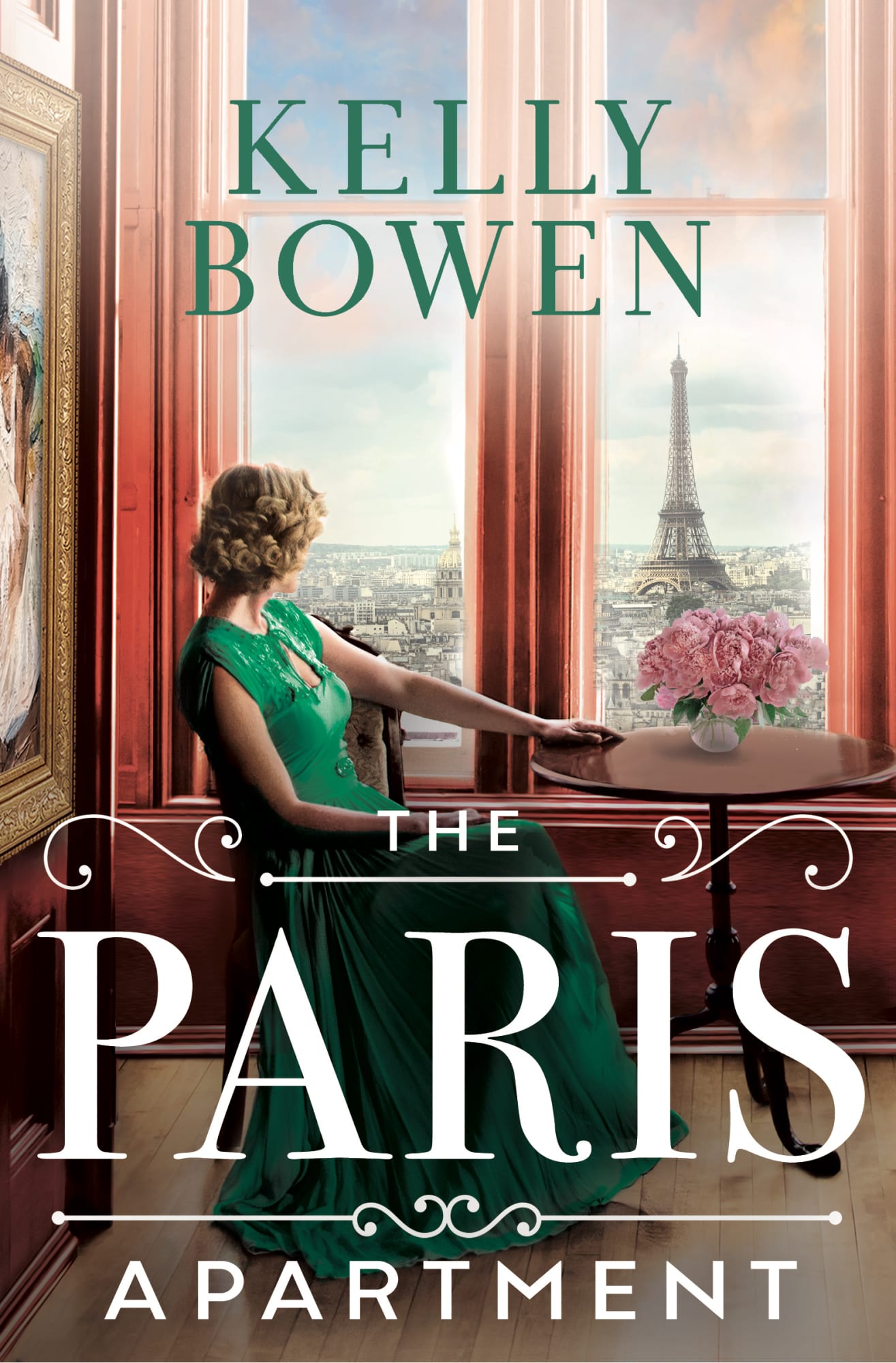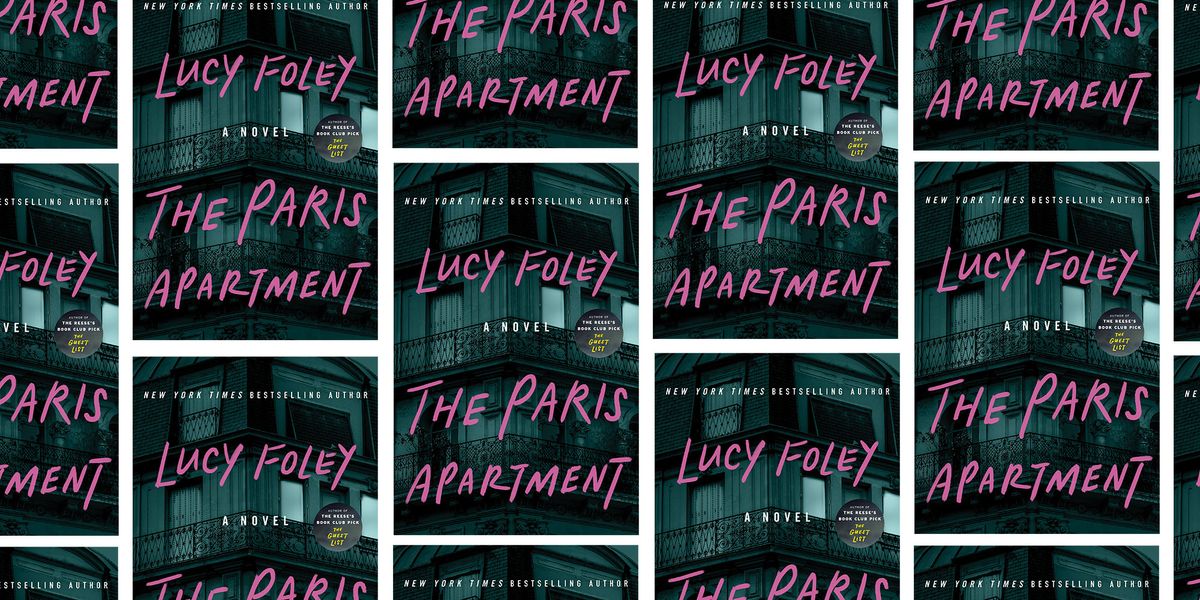[ad_1]
Parisian apartment is a beautiful story that celebrates the bravery of women during one of the darkest periods in human history. For a young woman who recently inherited her grandmother’s apartment, she learns more than she ever would have imagined about her grandmother and it triggers a quest to unlock those secrets. We had the chance to speak with author Kelly Bowen about how she brought this incredible book to life.
It’s not often that a book like Parisian apartment comes along. The story slowly unfolds as Lia tries to unravel the mystery of her grandmother Estelle’s past, twisting and turning as the pieces begin to come together, leading to a very satisfying conclusion.
It’s not easy to navigate the heavy topic, but Bowen masterfully weaves tragedies with small triumphs as Lia learns what her grandmother was doing in Paris during the Nazi occupation.
We had the chance to speak with Kelly Bowen about Parisian apartment and how she brought the book to life.
Please Note: This interview includes minor spoilers for Parisian apartment and would be better appreciated after reading the book.
Interview with Kelly Bowen, author of L’Appartement de Paris
(Culture): How did you come up with this specific story to highlight the stories of extraordinary women, and in this case of women who did extraordinary things in WWII?
(Kelly Bowen): The historical roles of women in combat during WWII have always interested me. When I began my research on the women who served their country for my novel, The Apartment in Paris, I was introduced very early to the biographies and memoirs of women in combat on the European front in Europe. East ; snipers such as Lyudmila Pavlichenko and Roza Shanina. Sergeant Mariya Oktyabrskaya received the Soviet Union’s highest honor for bravery in combat at the helm of his tank, and the female pilots of Stalin’s Air Force flew more than thirty thousand combat sorties in during the war and produced the only two female hunting aces in the world. , Lydia Litvyak and Yekaterina Budanova.
Yet on the Western Front, where my novel takes place, there were no female snipers, tank gunners or fighter pilots, for even in wartime the British government persisted in maintaining that it was not appropriate that “life givers are life takers”. It was not until 1942 that the first women entered the war on the Western Front with combat capability, relying on the argument that women would have much greater freedom of movement under the Nazi occupation. and that able-bodied men had become obvious Nazi targets. At that time, irregular male combatants secretly sent to the occupied territories had a life expectancy of less than three months.
The characters of Sophie and Estelle were inspired by real agents like Virginia Hall, Nancy Wake and Pearl Witherington Cornioley. Each of these women would be pursued and chased away by the Nazis but would eventually survive to tell their story. As I read their memoirs and stories, I have come to appreciate the extent of the obstacles they have overcome to serve their country.
The Paris Apartment is about the decisions we make and how we can choose to live our lives, and it is also a second chance. Can you talk about the decision to mix up multiple stories, one set of stories set in the past and the other in the present?
I chose to have dual narratives to reflect how choices made in the past can influence those in the present. When Lia’s grandmother chose to share her biggest secrets (both the apartment and her connection with William) with her granddaughter, I would like to think that she did so in the hope that Lia would have the chance to realize what she couldn’t do inside of herself. life. Without giving too many spoilers, I think the reader will agree that Estelle’s trip to her granddaughter changes the course of Lia’s life, and maybe that’s what Estelle had planned all along.
Lia has a sense of dread that runs through her with each new discovery in her grandmother’s apartment. The idea that his grandmother could have been a Nazi sympathizer weighs on him and you establish his unease from the start. I understand that you have ancestors who fought in the war; can you share how you learned their story and what these revelations meant to you?
As a “historian” of the resident family, I am often the recipient of “old things” found in parents’ basements and attics, an eclectic array of items packaged and labeled with a label that always reads “ For Kelly ”. A few years ago, one of these boxes which came into my possession contained the diary of my great-uncle, Private Percy William Shields, killed in action on the battlefields of France on September 9, 1918, in the 25 years old. In his journal, Pte. Shields wrote down his wartime experience in detail, providing the reader with a vivid glimpse into what he endured during World War I.
Twenty-two years later, my two grandfathers served in WWII in the RCEME and RCAF respectively, and although they were fortunate enough to return home, they did not have to newspaper. They also did not speak about their experiences, not to their children and certainly not to their grandchildren. The subject was off limits and it was as if those years had never existed. Except they did exist, of course, and even though my grandfather didn’t speak directly to them, he shared his service at RCEME with me in a way that I only recognized at a much older age. By the age of ten, I could read radio schematics, identify and solder the correct capacitor, resistor, or transistor in place.
I am humbled by the sacrifice so many people have made during this conflict, and in my novel, so is Lia. The idea that her grandmother could have been a collaborator and an accomplice in the atrocities that occurred during the Occupation shakes Lia deep within herself. Because Estelle hasn’t told anyone about the war, including Lia, Lia must draw her own conclusions based only on what was left behind. And as the story progresses, it’s not just the things left behind but the lessons they teach us that matter.
There are basically three love stories in The Paris Apartment: Estelle’s, Sophie’s, and Lia’s. Can you talk about shaping these love stories and your decisions to give some of your characters a real chance to love?
No matter what type of story you tell, I think the relationships in each story go a long way in shaping each character, not unlike how the relationships we have in real life shape who we are. Relationships define the story regardless of the external circumstances, and to that end, I have chosen to give each of my characters their own path to love, although each is very different.
Sophie fell hard and quickly, even though her own prejudices and earlier assumptions made her resistant to the idea of love. Estelle’s path to love was nothing like romance until much later, and the bond she forged without realizing that he would endure a war and endure for a long time. And Lia’s path, I like to think, was created by the voices of the past, while ultimately letting her decide how to follow love on her own terms.
Can you talk about how Estelle’s experience during the war shaped her life later? She kept secrets from her family and was sometimes so distant. What do you think prompted her not to share her past?
I like to let the reader draw their own conclusions about the choices my characters make and how their experiences shape them. But to answer your question, I think, at least to some extent, that it was Estelle’s belief that she had betrayed her loved ones that kept her from sharing her secrets. She believed she had failed Sophie, even though Sophie made her own decisions and Estelle completed what she couldn’t. Estelle passed away before she could find Aviva, and I can’t help but believe that she felt that she had failed both Rachel and Aviva on this measure as well. She made promises she thought she broke. It was a piece of her life that was filled with heartbreak and pain and loss, and she carried that piece the only way she knew how to – keeping it, and herself, away from it all. world.
Part of the haunting beauty of The Paris Apartment is that it is rooted in real-life stories of wartime heroism, and the story reflects the harsh realities of WWII. Can you talk about your experience writing some of these emotionally charged scenes?
In my research, I rely heavily on memoirs and letters, or any other firsthand accounts of those who were there. Other resources like reports, maps and texts give me precise dates, times and numbers and a factual record of what happened, but cannot express how those who were there were feeling. Writing down that emotion is at the heart of any story, because it is the emotion that ultimately drives individuals to do extraordinary things that they may never have believed themselves capable of. As a writer, emotion is what I try to capture, because that’s what shapes and forges bonds.
Our gratitude goes to Kelly Bowen for taking the time to answer our questions about her new book. Parisian apartment is available now.
[ad_2]
Source link




